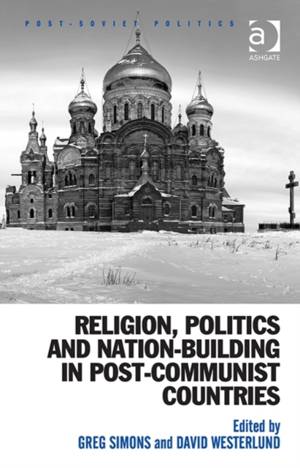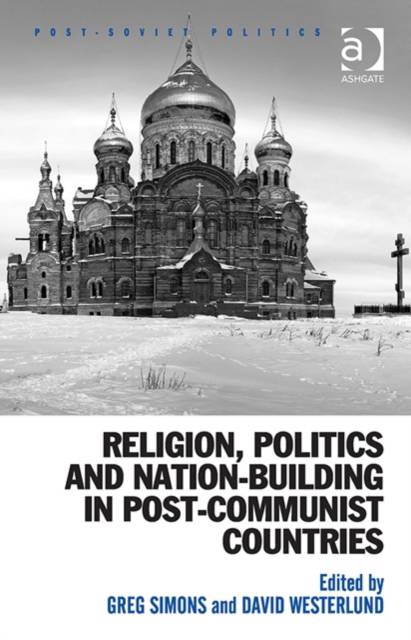
Door een staking bij bpost kan je online bestelling op dit moment iets langer onderweg zijn dan voorzien. Dringend iets nodig? Onze winkels ontvangen jou met open armen!
- Afhalen na 1 uur in een winkel met voorraad
- Gratis thuislevering in België vanaf € 30
- Ruim aanbod met 7 miljoen producten
Door een staking bij bpost kan je online bestelling op dit moment iets langer onderweg zijn dan voorzien. Dringend iets nodig? Onze winkels ontvangen jou met open armen!
- Afhalen na 1 uur in een winkel met voorraad
- Gratis thuislevering in België vanaf € 30
- Ruim aanbod met 7 miljoen producten
Zoeken
€ 195,95
+ 391 punten
Omschrijving
The increasing significance and visibility of relationships between religion and public arenas and institutions following the fall of communism in Europe provide the core focus of this fascinating book. Leading international scholars consider the religious and political role of Christian Orthodoxy in the Russian Federation, Romania, Georgia and Ukraine alongside the revival of old, indigenous religions, often referred to as 'shamanistic' and look at how, despite Islam's long history and many adherents in the south, Islamophobic attitudes have increasingly been added to traditional anti-Semitic, anti-Western or anti-liberal elements of Russian nationalism. Contrasts between the church's position in the post-communist nation building process of secular Estonia with its role in predominantly Catholic Poland are also explored. Religion, Politics and Nation-Building in Post-Communist Countries gives a broad overview of the political importance of religion in the Post-Soviet space but its interest and relevance extends far beyond the geographical focus, providing examples of the challenges in the spheres of public, religious and social policy for all transitional countries.
Specificaties
Betrokkenen
- Auteur(s):
- Uitgeverij:
Inhoud
- Aantal bladzijden:
- 234
- Taal:
- Engels
- Reeks:
Eigenschappen
- Productcode (EAN):
- 9781472449696
- Verschijningsdatum:
- 28/02/2015
- Uitvoering:
- Hardcover
- Formaat:
- Genaaid
- Afmetingen:
- 156 mm x 233 mm
- Gewicht:
- 585 g

Alleen bij Standaard Boekhandel
+ 391 punten op je klantenkaart van Standaard Boekhandel
Beoordelingen
We publiceren alleen reviews die voldoen aan de voorwaarden voor reviews. Bekijk onze voorwaarden voor reviews.











